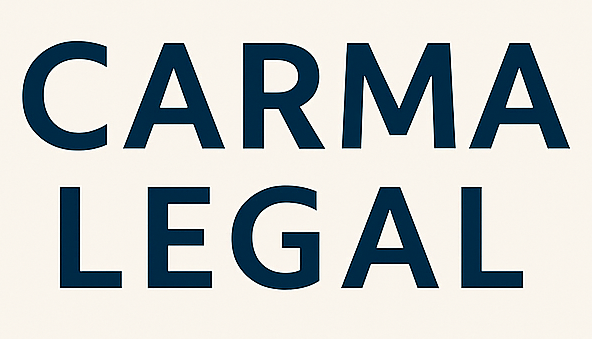When you lose someone unexpectedly due to an accident or negligence, the path to securing death benefits can feel overwhelming. A death benefits lawyer acts as your advocate, guiding you through each step, from filing claims to negotiating with insurance companies. With expert support, you can focus on healing while your attorney pursues the full compensation you and your family need.
Understanding death benefits
Overview of death benefits
Death benefits cover financial recovery after a loved one’s death caused by injury, accident, or illness. These benefits aim to compensate surviving family members for economic and noneconomic losses, including lost income, medical expenses, funeral costs, and emotional suffering. By understanding the types of death benefits available, you can work with your attorney to identify all avenues for recovery.
Types of death benefits
Life insurance payouts
When the decedent held a life insurance policy, beneficiaries can file a claim to receive the policy’s face value. Insurance companies may delay or deny claims, hoping beneficiaries will give up. An experienced lawyer can investigate denials, file appeals, and negotiate settlements on your behalf [1].
Accidental death insurance
Accidental death policies pay a fixed indemnity if death is sudden and unexpected. However, hidden exclusions—such as deaths during medical treatment or due to underlying conditions—can complicate claims. A legal advocate can interpret policy language, meet ERISA deadlines, and build a persuasive case for benefits [2].
Wrongful death compensation
When negligence or intentional harm causes death, surviving relatives can file a wrongful death claim against responsible parties. Recoverable damages may include funeral costs, lost financial support, loss of companionship, and emotional suffering. In rare cases, punitive damages may be awarded for malicious conduct [3].
Workers compensation benefits
If a fatal workplace injury occurs, surviving dependents may qualify for death benefits under state workers’ compensation laws. These benefits often cover medical and funeral expenses, plus weekly wage replacement for a set period.
Survivor benefit claims
Government programs such as Social Security survivor benefits and veterans’ death pensions can offset long-term care costs. A death benefits lawyer can help you apply for these benefits and appeal any denials. For specialized support, consider consulting a survivor benefits claim lawyer.
Benefits of legal advocacy
Navigate complex regulations
Death benefits laws vary by jurisdiction and claim type. Your attorney stays current on state deadlines, policy requirements, and procedural rules, ensuring your claim is filed properly. For example, some states apply the discovery rule or have specific repose periods for medical malpractice deaths [4].
Communicate with insurers
Insurance providers often use complex forms and legal language to minimize payouts. Your lawyer handles all correspondence, gathers necessary evidence, and counters tactics designed to delay or deny your claim.
Protect your rights
By engaging an advocate, you shift the burden of proof and negotiation to trained professionals. Attorneys can confront bad-faith insurers, file appeals for denied claims, and, if required, take your case to court.
Maximize your compensation
Calculate full damages
A thorough damage assessment ensures no losses go unclaimed. Common elements include:
- Medical and hospital bills incurred before death
- Funeral and burial expenses
- Lost future income and benefits
- Loss of household services
- Pain and suffering endured by the decedent before death
Include economic losses
Your lawyer works with financial experts to project ongoing financial support the decedent would have provided. This may cover:
- Spousal and child support
- Retirement contributions
- Inheritance losses
Account for non-economic impact
Compensation for noneconomic losses acknowledges intangible harms: loss of companionship, guidance, and parental support. These awards vary widely, but an experienced attorney will argue persuasively for fair valuation.
Seek punitive damages
In cases involving gross negligence or intentional wrongdoing, you may pursue punitive damages to punish the responsible party. Such awards are rare but can significantly increase your total recovery.
Select an experienced attorney
Evaluate credentials and experience
Experience in wrongful death and catastrophic injury cases equips lawyers to handle complex litigation. Attorneys with a proven track record have refined negotiation skills and courtroom success [5].
Verify licensing and specialization
Ensure your attorney is licensed in your state and specializes in death benefits or personal injury law. Specialty practice indicates focused expertise in navigating unique challenges.
Review client testimonials
Former clients’ reviews offer insights into a lawyer’s compassion, communication style, and ability to deliver results. Look for feedback on responsiveness and case outcomes.
Assess trial readiness
While many claims settle out of court, a lawyer’s trial experience can strengthen your negotiating position. Trial-seasoned attorneys are prepared to present evidence, cross-examine witnesses, and craft compelling narratives [6]. For families facing a fatal car wreck, a fatal car accident lawyer with courtroom expertise can be crucial.
Prepare your claim
Gather essential documents
Collect and organize:
- Death certificate
- Police and accident reports
- Medical records and bills
- Insurance policies and beneficiary designation forms
- Proof of lost income and benefits
Track filing deadlines
Most states impose strict time limits—often two years from the date of death—to bring a wrongful death claim [4]. Missing deadlines can forfeit your right to compensation.
Coordinate with your attorney
Maintain open communication by providing timely updates and responding to information requests. A collaborative approach ensures that your lawyer builds the strongest possible case.
Fees and timelines
Understand contingency fees
Death benefits lawyers typically work on a contingency fee basis, meaning you pay no fees unless you recover compensation. Contingency percentages range from 33 1/3 percent to 40 percent of the final settlement or judgment [7]. This arrangement makes legal representation accessible without upfront costs.
Know your deadlines
Statutes of limitations vary by state and claim type. Your lawyer will clarify applicable deadlines—whether for life insurance appeals governed by ERISA or state wrongful death statutes—and file each claim on time.
Estimate case duration
While every case is unique, complex wrongful death claims often resolve within 12 to 24 months. Factors such as evidence gathering, insurance negotiations, and court schedules influence the timeline.
Take proactive steps
Schedule initial consultation
Reach out to a qualified death benefits lawyer for a no-obligation case review. Early engagement allows your attorney to preserve evidence and meet critical deadlines.
Ask critical questions
During your consultation, inquire about:
- Past results in death benefits cases
- Trial and settlement experience
- Communication and case-management practices
- Fee structure and expenses
Stay informed and engaged
Regularly review case updates, ask questions, and participate in strategy discussions. Your involvement helps your lawyer tailor arguments to your family’s needs.
By partnering with a dedicated death benefits lawyer, you gain a knowledgeable ally to navigate complex regulations, negotiate with insurers, and pursue the full compensation you deserve. Take the first step today by consulting an experienced attorney and securing your family’s financial future.








